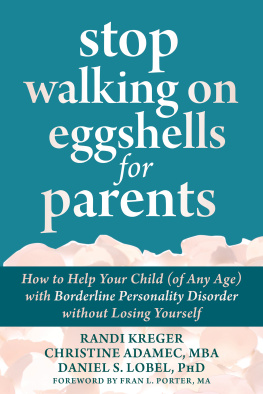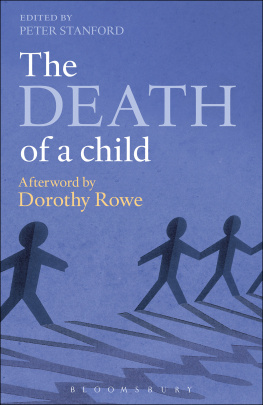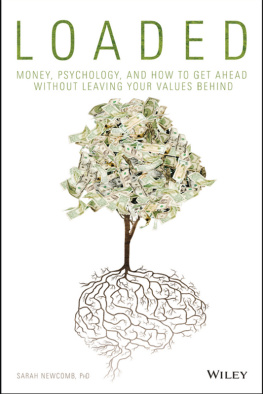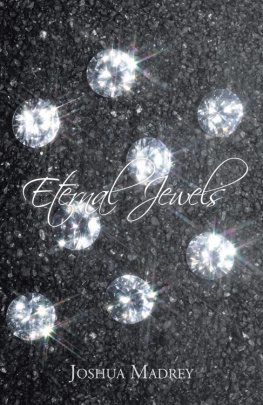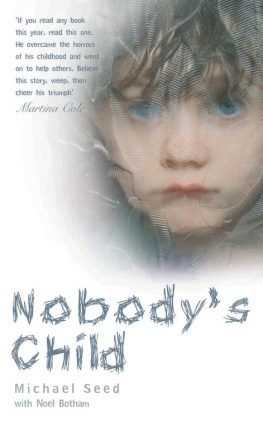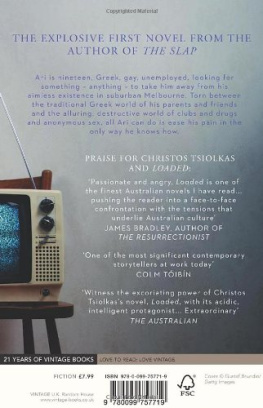ALSO BY LEWIS NORDAN
Welcome to the Arrow-Catcher Fair
The All-Girl Football Team
Music of the Swamp
Wolf Whistle
The Sharpshooter Blues
Sugar Among the Freaks
Lightning Song
A MEMOIR
BOY WITH
LOADED GUN
BY LEWIS NORDAN
ALGONQUIN BOOKS OF CHAPEL HILL
The author wishes to thank the Virginia Center for the Creative Arts, where this book was written.
Published by
ALGONQUIN BOOKS OF CHAPEL HILL
Post Office Box 2225
Chapel Hill, North Carolina 27515-2225
a division of
Workman Publishing
225 Varick Street
New York, New York 10014
2000 by Lewis Nordan. All rights reserved.
Some chapters first appeared in slightly different forms in the following publications: chapter six in Southern Living, chapter seven in The Oxford American, chapter fifteen and the Epilogue in Harpers, and chapter nineteen in Playgirl.
Library of Congress Cataloging-in-Publication Data is available.
eISBN 978-1-61620-460-0
FOR
Lewis Eric Nordan
IN MEMORY
Lemuel Alonzo Nordan
Gilbert Russell Bayles
Russell Ammon Nordan
John Robert Nordan
My life has been incredible.
I dont believe a word of it.
KATHERINE ANNE PORTER
AUTHORS NOTE
I couldnt decide whether to call this book a Memoir or not, so I put the problem to my wife: I said, If you were working at the Library of Congress, how would you list this one?
She said, Nordan, Lewis.
I said, No, I mean
She said, ISBN whatever.
Fiction or Nonfiction, I said. It seems to fall somewhere between the two.
She said, You made up your memoir?
Names mostly, you know.
She said, You didnt mention my name, did you?
I changed your name, I changed all the names, thats what Im saying.
If all you changed was names
And conversations. I made up some conversations.
StillId say Memoir.
And maybe I exaggerated some stuff too. Some of the painful stuff, death, and like that.
Grief Therapy. Excellent! Self-Help, Popular Psychology
No, no
You didnt include any recipes, did you?
The books about me, basically. Who I am, and
I see where youre going with this. A How To Guide for Jackasses.
Really Im just trying to decide between Fiction and Nonfiction.
Okay, okay, give me some chapter titles. That might help.
I said, Theres a chapter called The Man I Killed.
Murder mystery!
Up, Up, and Away!
Comics!
Zen and the Art of Mail Order.
Eastern Religions!
One on Emmett Till.
Historical!
Tell Me, Ramon Fernandez, If You Know.
Poetry!
The Amazing Technicolor Effing Machine.
This stopped her.
Say what?
Theres a chapter called The Amazing Technicolor Effing Machine.
Musical comedy?
Probably not.
Whats an effing machine?
Effing. Its a euphemism, you know. Im embarrassed. The f-word. Jeez.
Thats the title of one of your chapters? You wrote a book about you being an effing machine?
Not
Nonfiction is pretty much off the table at this point.
Honey, listen
We might be looking at Fantasy here.
Its not me. Im not the effing machine. Its a machine. An actual machine.
You wrote about a machine that
Right.
Youre telling me youve written a Science Fiction memoir? A Science Fiction memoir is impossible to catalog, I hate to tell you.
No, this part is not fiction, its real, the effing machine is true.
For a long time she only looked at me.
All right, all right, she said at last. Lets move on. More chapter titles, lets go.
The Land of Dreamy Dreams.
Travel.
Violence in America.
Sociology.
It was pretty clear we were getting nowhere.
She said, So anyway
I said, Yeah.
She said, So about this machine.
The effing machine?
Right, right.
I said, Yeah?
She said, Where do you keep it?
ONE
1
Voodoo
DURING THE DAY, WHILE my mother worked, I moved with ease across the small property where we lived. A brindle cow bellowed from a neighbors yard. Mr. Alexander, next door, stopped by with a honeycomb from his hive, which he shared with me; the crunching in my ears as I chewed the comb were only bee carcasses, he told me, some of the best eating. An old lady down the street yelled at me not to throw persimmons onto her sidewalk. In a corner of the yard stood what we called the arbor, really a large wooden frame draped with fragrant grapevines, muscadines, which attracted an enormity of tuneful bumblebees into the foliage; beneath the shade of these vines I stood with my eyes closed and breathed deep and drank in the purple fragrance of the swollen grapes and of the sweet leaves that, after summer rain, smelled like green peas. The bees were as loud as a stringed orchestra, and when I grew up and read a poem by Yeats about a bee-loud glade, I was certain I had heard what the poet heard, and heard it again simply by remembering. On the other side of the house stood great, dark pecan trees, their shade so deep and constant that, no matter the weather, the side yard never fully warmed up during the day, and though I played there from morning to suppertime beneath those trees, as the sun passed across the blue sky above me, the light that reached me there was forever dim as twilight. Now half a century later the images beneath those magical trees glimmer and ripple and change as if viewed through water, as it seems to me they did even then. All such images, though they occur to me only in beauty, are really images of loneliness. My father was dead, my mother was away somewhere, somewhere behind me toiled a nursemaid hired to look after me, and I sat all alone in the crook of a willow tree that grew in a ditch alongside a dirt road, looking outward, outward from my perch for the end of longing, for rescue from grief, for which I had no word or even memory.
When I was just eighteen months old, my father died suddenly and left my young mother and me alone, just at the beginning of World War II. He had never been sick before, the story goesNever sick a day in his life. So when he came home early from work that day, my mother didnt even take the illness seriously and left to go to a meeting of some kind. The two of them had thought he had indigestion. He died while she was out. When my mother got word at her meeting that her husband, who she had only just seen and spoken to, was dead, she says she didnt cry at all, not until much later, so unreal was the news. She says she only came home and sat and stared out a window at a stand of pine trees out from the house. That was the only response she says she could muster.
I wish I could remember the day of my fathers death. If not my father, at least the day that he died. Whether it was cloudy or sunny, who was looking after me, whether I missed him when he was not in the room that night, or the next. I have looked at photographs of myself and of my mother and father during that time, a blond boy-child with a serious, furrowed brow. In some pictures, I am wearing a gown sometimes, a dark sailor suit in other pictures. My mother is a pretty 1940s woman with short hair and spit curls, wearing a sassy dark dress with big white polka dots. Her smile is as bright as sunshine. There is one picture of my father, in which he holds me. He is wearing a hat. He has taken off his suit jacket and wears a white shirt and tie and vest. The sleeves of the shirt are bright against the dark vest. He is wearing glasses, which along with the hat brim, prevent me from seeing his eyes.
Next page


